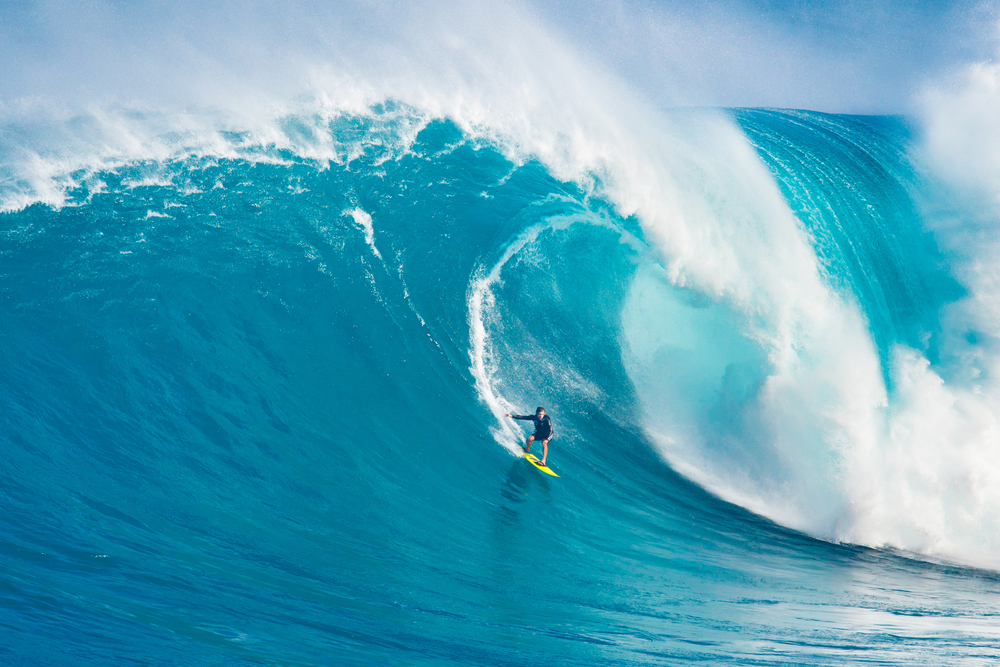“Go with the flow.” Accept, adapt and move forward. It’s what we tell ourselves when life takes a curve in a direction we didn’t expect.
But it would surely have a much different meaning to researchers studying what’s happening in the brain when people achieve great things. In that arena, “flow” is the term that describes an optimal state of consciousness in which the brain focuses so completely on a specific task that a person’s mental or physical performance reaches their highest possible levels.
It’s the state of mind present in Olympic athletes when they earn gold medals, in scientists when they make great breakthroughs, and in musicians when they compose their greatest pieces.
The founders of the Flow Genome Project seek to bring an understanding of “flow” to the broader population and teach us how to tap into it. The Flow Genome Project is a trans-disciplinary, international organization committed to mapping the genome of flow by 2020 and open sourcing it to everyone.
How “Flow” Works
Psychologist Mihaly Csikszentmihalyi is the modern-day father of the concept of “flow.” He described it in an interview in Wired magazine in 1996 as:
Being completely involved in an activity for its own sake. The ego falls away. Time flies. Every action, movement, and thought follows inevitably from the previous one, like playing jazz. Your whole being is involved, and you’re using your skills to the utmost.
Steven Kotler, author of The Rise Of Superman and co-founder of the Flow Genome Project, explains the neuroscience involved. People previously assumed that great performance was achieved when every part of the brain was firing on all cylinders. Science has proven that it’s actually the opposite. “What happens in flow is parts of the brain start to shut down,” he says. “As you move deeper into flow, as attention and focus drill down, the brain makes an efficiency trade-off. It basically moves things out of the conscious mind and into the subconscious.”
Parts Of The Brain Temporarily Shut Down
The dorsolateral-prefrontal cortex that houses our inner critic, our sense of doubt and disparagement, shuts off. “One of the reasons we feel so liberated in flow is that defeatist nag is turned off. That careful self is gone for a second,” he says. Our sense of time gets lost because time is calculated over multiple parts of the prefrontal cortex and when sections of it go off line, we lose our ability to calculate time.
Just five or 10 years ago, this heightened state of mind producing superior performance was thought to be a random fleeting occurrence, says Jamie Wheal, a high-performance and developmental learning expert and the co-founder and executive director of the Flow Genome Project.
With the advent of functional magnetic resonance imaging, EEG tracking, various quick skin-prick tests and tests of blood chemistry tests, the state of flow can be measured empirically. “We can sort of bottle the lightening,” Wheal says. “We’ve got a lot richer understanding of the various levers that we can move and tweak and adjust in ourselves so that we can have these more than once in a blue moon.”
How To Tap Into “Flow”
Through the Flow Genome Project, Kotler and Wheal are developing ways to help people discover how they can tap into their individual flow state.
“You’ve got to start with your core passion, with that which you love,” Kotler says. “We’re much more likely to get into flow when we believe in what we’re doing, when we’re valuing what we’re doing, when we think it’s making the world a better place.”
Also, make sure there’s an aspect of challenge involved to stimulate your attention and focus. “We are much more likely to stumble into flow when we’re doing something extremely challenging where it exceeds our skills by four or five percent,” he says.
These fundamental factors are important, but there’s much more to it. We can, however, learn how to be more prone to moving into states of flow. We can learn additional triggers and gain a better understanding of the conditions that are likely to invite our brains to enter a flow state.
If you’d like to learn more about optimal brain performance and the “state of flow”, check out Steven Kotler’s brand new book, The Rise Of Superman.

















I think the best way to achieve this state is to start out by eliminating distractions. We are pressured to multitask constantly today and multitasking is inconsistent with this state of flow. Quieting technology while we work (or at least the technology we are not using at the moment) is probably necessary to being focused and concentrating our mind.
While I enjoy the benefits of technology, I hope printed books never disappear because sometimes it is a relief to just read what is in front of me without anything competing for my attention!
Great interesting stuff as usual, Erin! I related to Csikszentmihalyi’s comment about jazz a lot, having been a jazz musician for much of my life. Improvisation is the same as composing any melody except that it’s the act of spontaneous composition sans the ability to change the melody, though it can be embellished and changed within the solo as the tune progresses. I’ve experienced flow personally, many times. It’s easy to get there, too, and it is a definite fact that as one becomes more involved in the solo that much of the surrounding world is shut out. In a particularly creative situation with other great players is where the real magic happens.
Hey Pat! Yes, you musicians have long been the keepers of the keys to Flow States. It’s such a fascinating topic to study.